Enchanted Cottage, The (1945)
“Oh no, it’s not haunted — just enchanted.”
|
Synopsis: |
|
Genres, Themes, Actors, and Directors:
Response to Peary’s Review: I actually don’t find the script to be “embarrassing”, given that it unabashedly sets out to tell a particular tale of romance between two deeply troubled individuals. The “fantasy” element (i.e., the fact that Young and McGuire genuinely believe they’re seeing physical changes in each other) mostly worked for me, on a metaphorical level; let’s just say I was willing to go along for the ride. What’s less convincing is McGuire’s physical appearance as a dowdy lass: it’s perfectly true, as many have pointed out, that her “defects” could be (and are) easily fixed by a new haircut, a bit of make-up, and a renewed sense of self-confidence. One scene — in which multiple GIs at a dance glance at her from afar, then turn away once they get a closer look — edges close to campy melodrama, but is believable if you’re willing to acknowledge that McGuire (prior to falling in love with Young) simply projects, without meaning to, some kind of “stay away from me” vibe of “ugliness”. Young, meanwhile, does a fine job shifting from self-assured pilot to embittered veteran to a man renewed by love; and Natwick projects an appropriate aura of mystery as a landlady who’s lived with her house’s secrets for many decades. Redeeming Qualities and Moments: Must See? Links: |
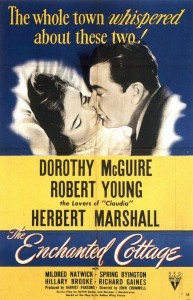
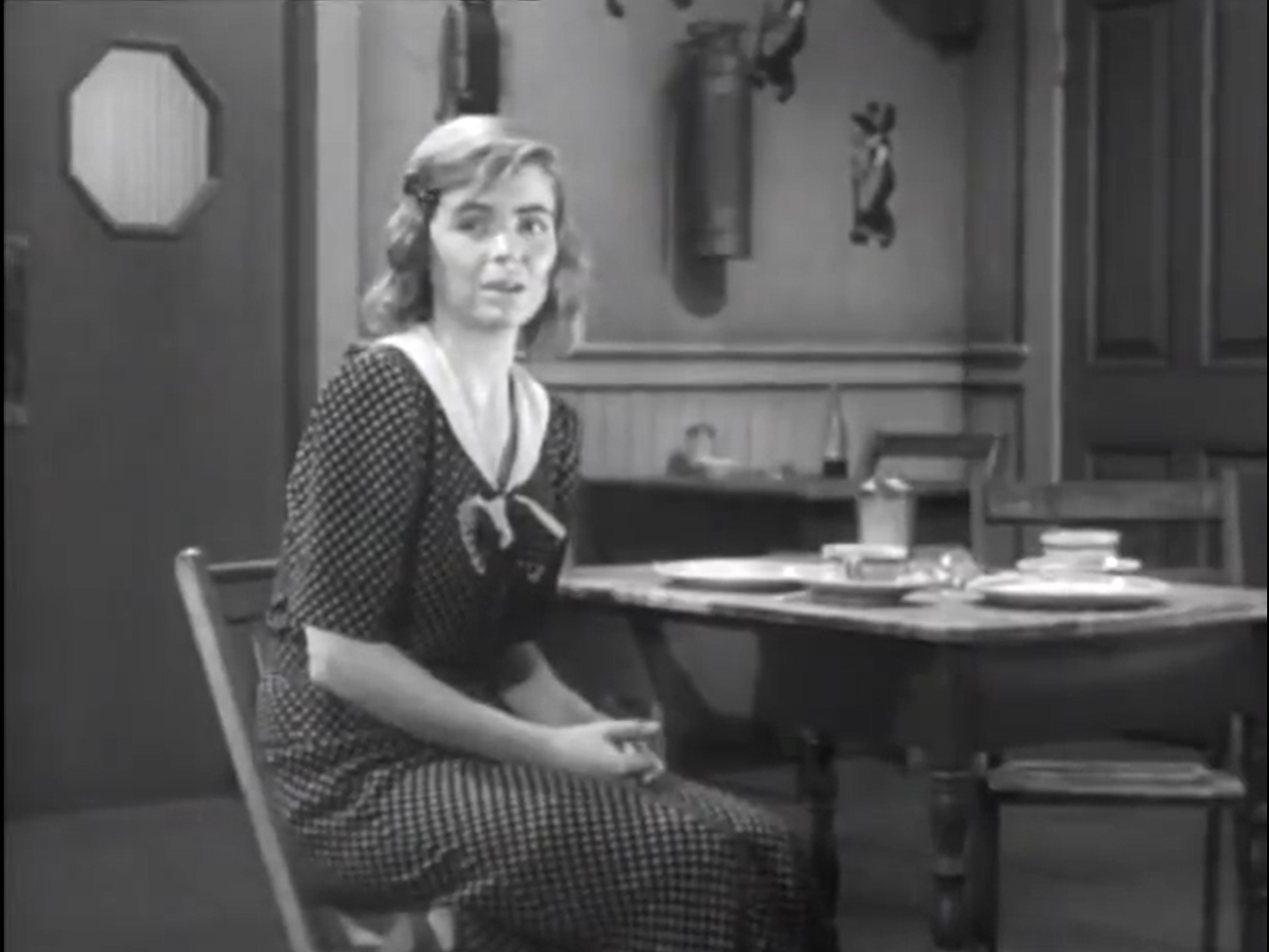
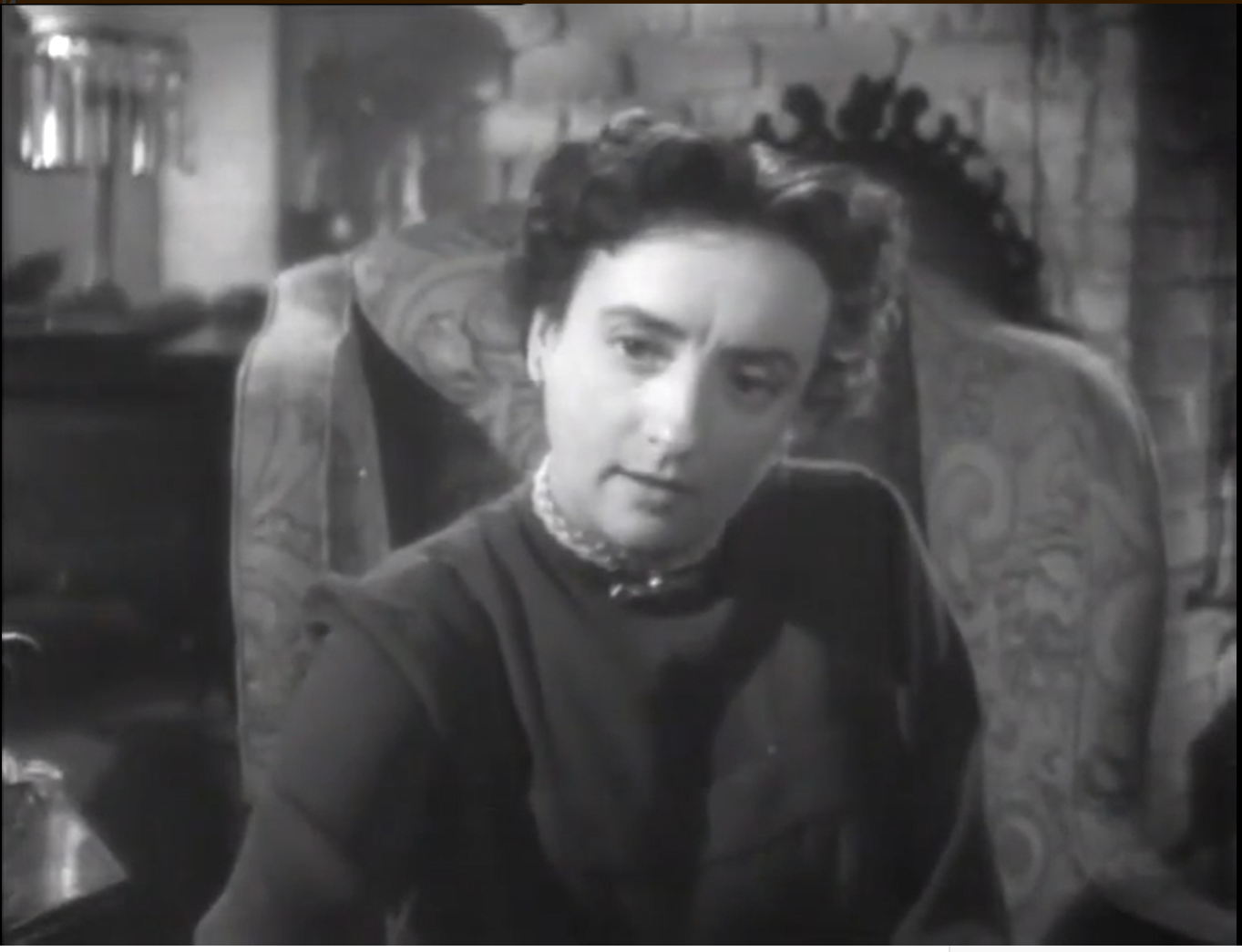
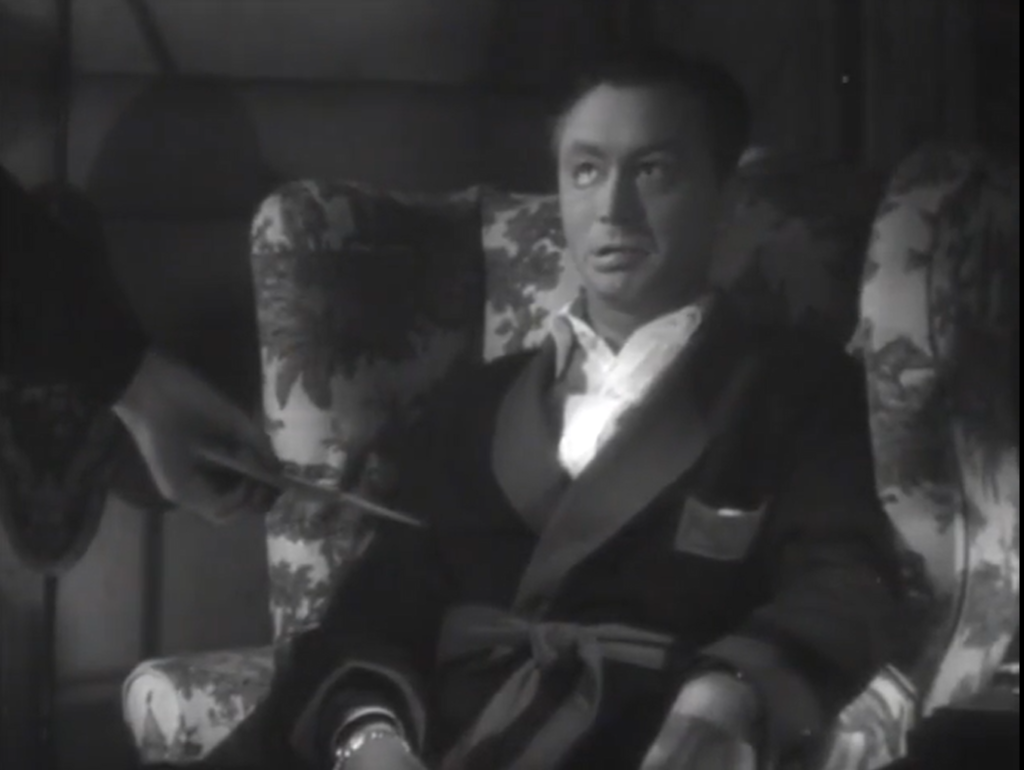
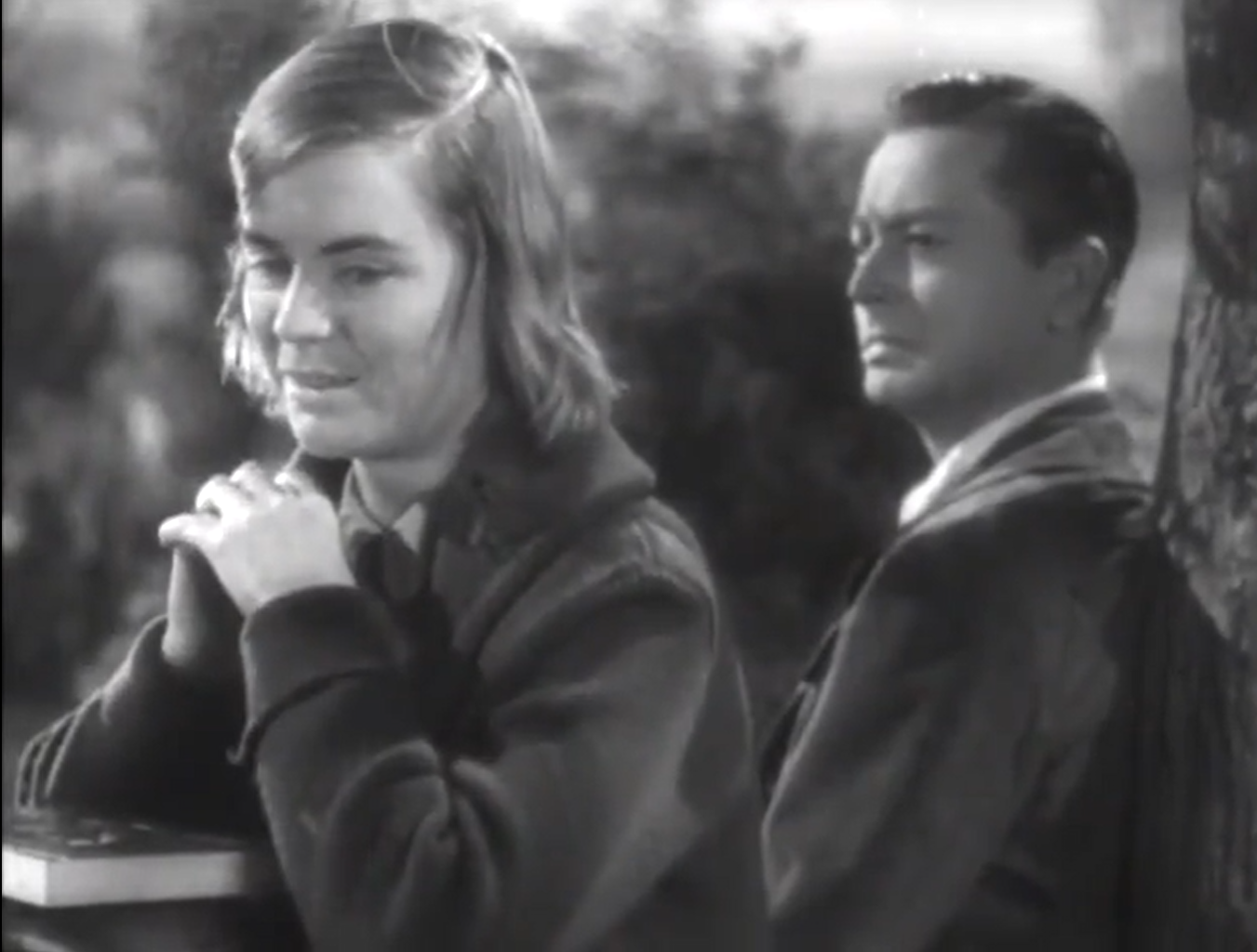
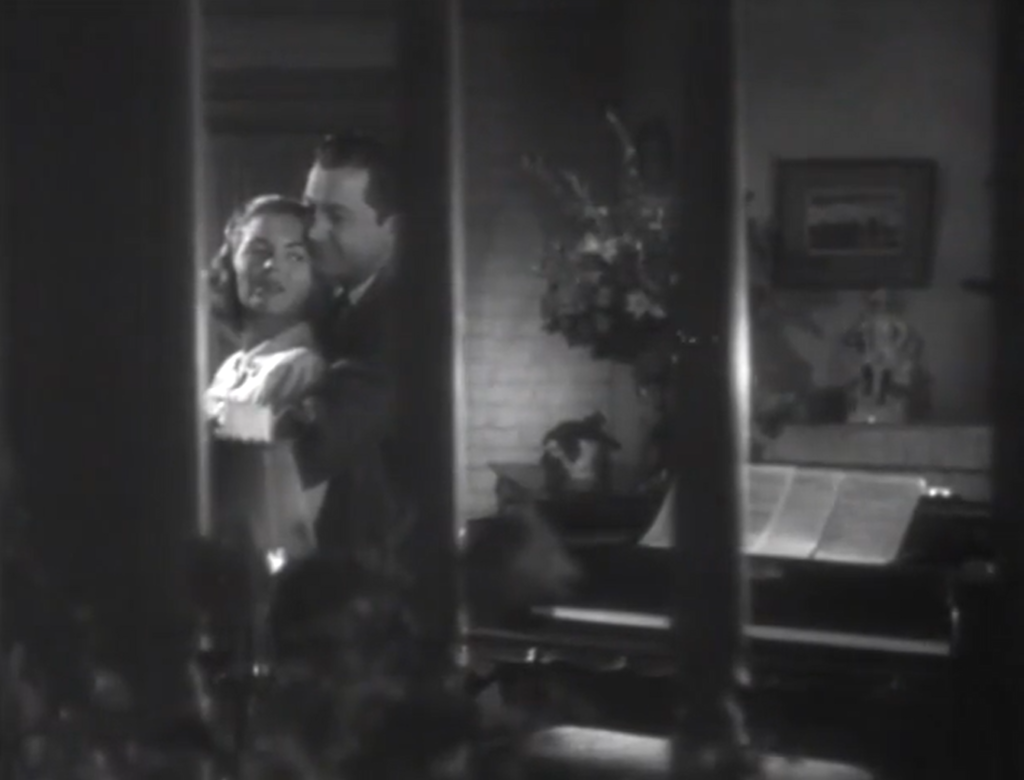
One thought on “Enchanted Cottage, The (1945)”
A once-must, for its place in cinema history.
As per my post in ‘The ’40s-’50s in Film’:
[“That’s why I wanted you to be here – because there’s something here for you that there isn’t anywhere else. You understand?”
‘The Enchanted Cottage’ (1945): Co-written by Herman J. Mankiewicz and DeWitt Bodeen (the latter had just written ‘Cat People’, ‘Curse of the Cat People’ and ‘The Seventh Victim’)…this unusual tale of a magical little place that nurtures true love can be hard to take…depending on how you take it. If you focus on its sappier aspect (about how beauty is skin deep), you’re likely to find it somewhat heavy-handed. But if are looking at the film differently (as a story about two people who feel set apart from the rest of the world in general and become lucky enough to find each other), then the film may hold a power that’s not as overtly intended. The film holds one of Robert Young’s better performances as a man who turns from confident to bitter due to misfortune in life – and Dorothy McGuire supports him rather well as his unlikely love. (It’s just really hard to swallow that McGuire is supposed to be “homely” when what’s more apparent is that she has an aversion to the public-at-large.) But perhaps the film’s most refreshing turn comes from Herbert Marshall – as the confidante with the purest of hearts. ‘TEC’ probably works best for both hopeful and hopeless romantics.”]
Side note: I was surprised by the performance given by Hillary Brooke as Young’s fiancee. I was expecting at first that her character would be thinly drawn as a snobbish socialite. But, later on in the film, she reveals a rather interesting and touching side…admitting her shortcomings and making a brave attempt at compassion for Young.